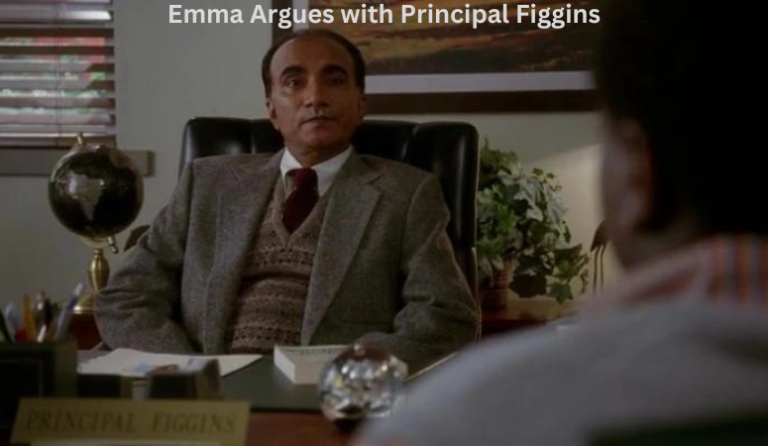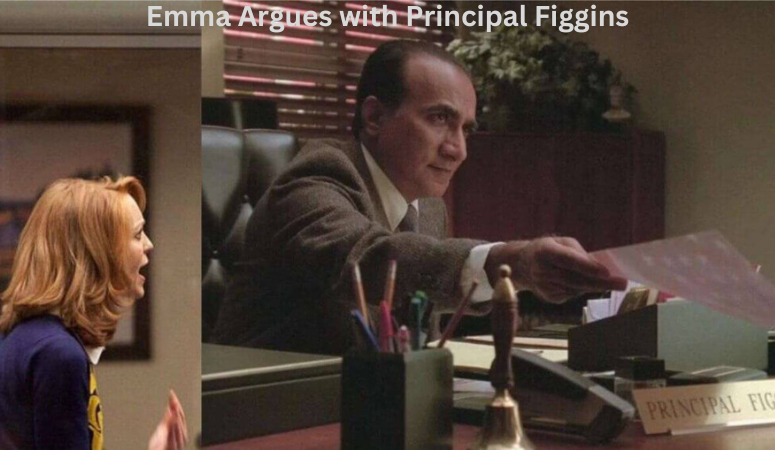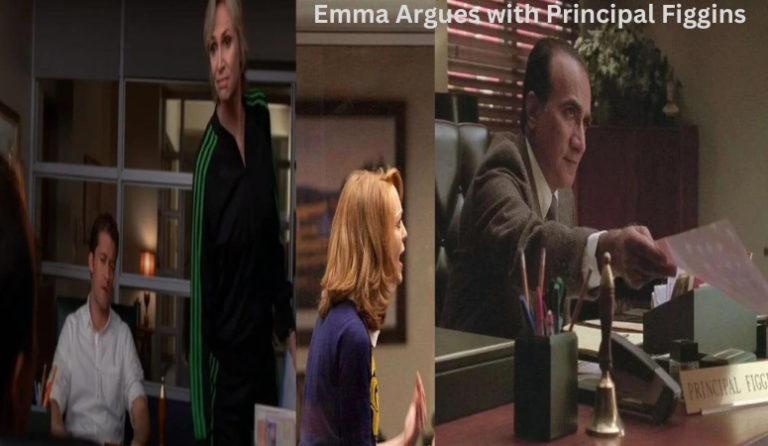Explore a compelling narrative as Emma Argues with Principal Figgins in this engaging storyline. Witness the intensity of their argument and discover the twists and turns that unfold. Dive into a tale of conflict, resolution, and the complexities of relationships in this riveting encounter between Emma and Principal Figgins.
In the realm of high school dynamics, clashes between students and authority figures are not uncommon. One such instance that has garnered attention is the disagreement between Emma, a diligent student, and Principal Figgins. In this article, we delve into the details of this dispute, aiming to provide a comprehensive understanding of the situation.
The Genesis of the Disagreement
Academic Standards and Emma’s Concerns
At the crux Emma Argues with Principal Figgins’s concern for academic standards within the school. Our investigation reveals that Emma, a top-performing student, noticed a discrepancy in the implementation of certain educational policies. Her commitment to excellence led her to question the rationale behind these decisions, sparking a dialogue with school authorities.

The Exchange: Emma’s Assertiveness
Open Communication
Emma, known for her articulate communication skills, initiated a dialogue with Principal Figgins to address her concerns. Her approach was characterized by a respectful yet assertive tone, emphasizing her commitment to maintaining the school’s reputation for academic excellence.
Presentation of Evidence
To bolster her case, Emma meticulously gathered data and evidence supporting her claims. This included a detailed analysis of academic policies, comparative studies with other institutions, and input from fellow students who shared similar apprehensions. Emma’s strategic use of evidence aimed to sway the conversation towards a constructive resolution.
Principal Figgins’ Response
Acknowledgment of Concerns
In response to Emma’s articulate presentation, Principal Figgins acknowledged the validity of her concerns. This acknowledgment marked a pivotal moment in the discourse, as it signaled the administration’s willingness to address issues raised by conscientious students.
Collaborative Problem-Solving
Principal Figgins, recognizing the need for a collaborative approach, initiated a series of meetings involving Emma, concerned faculty members, and representatives from the student body. This inclusive method aimed to foster a sense of unity and shared responsibility in finding viable solutions to the identified problems.
The Resolutions
Policy Reevaluation
One of the outcomes of Emma’s dialogue with Principal Figgins was the reevaluation of certain academic policies. The administration, keen on maintaining an environment conducive to learning, undertook a comprehensive review of existing regulations to ensure they aligned with contemporary educational standards.
Student Involvement in Decision-Making
Emma’s unwavering commitment to the cause paved the way for increased student involvement in decision-making processes. The school administration, under the guidance of Principal Figgins, implemented a student council that actively participated in shaping policies related to academics and student welfare.

Conclusion
In conclusion, the dispute between Emma Argues with Principal Figgins serves as a testament to the power of open communication and collaborative problem-solving within educational institutions. This incident highlights the positive outcomes that can emerge when students, like Emma, take an active role in advocating for the improvement of academic standards.
An amazing post to read about your essential shopper arizona

